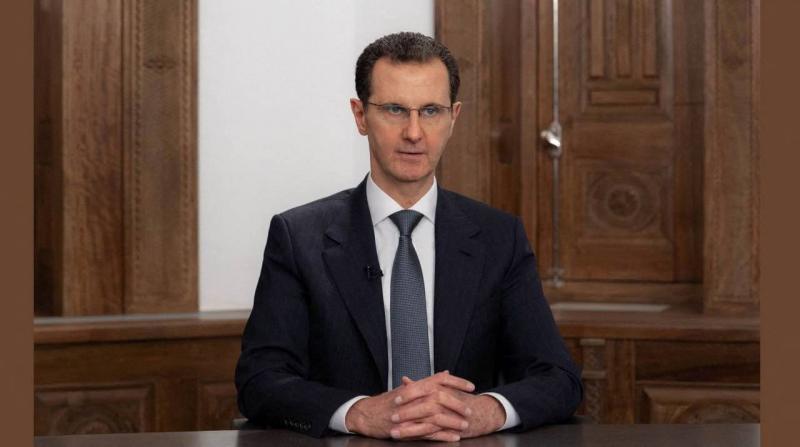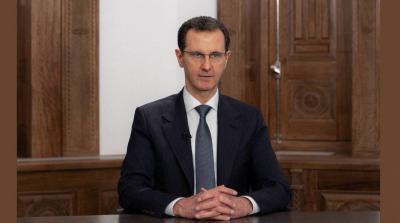In a notable step in terms of its timing and implications related to the current developments in the region, the Syrian presidency announced in recent hours that President Bashar al-Assad chaired a meeting of the leaders of the security agencies in the army and armed forces. The meeting focused on the anticipated impact of the ongoing restructuring in the security field and the enhancement of coordination between the agencies to improve the performance of security forces in the upcoming phase and to develop tools for combating terrorism.
The meeting laid out a security roadmap based on strategic visions addressing the international, regional, and internal challenges and risks that affect the safety of the homeland and citizens, as well as the safety of the armed forces. This meeting comes just a few days after unofficial Syrian media reported unexpected security changes affecting sensitive security centers in Syria, which some opposition figures linked to the possibility of a withdrawal of American forces. They considered it part of the regime's efforts to change its image in front of Washington and the world, while others noted that it is part of preparing the ground for a settlement phase following the Gaza war, as Syria must be part of it.
Amid the region's oscillation between the options of total war and a grand settlement, with both options seeming equally likely, a former minister close to the Syrian regime revealed to "Al-Markazia" that an American security delegation has been in Damascus for some time, conducting communications with officials away from the limelight, alongside European contacts with the regime. While he refused to disclose the nature of the American presence and the communications and their objectives, he clarified that they are not far from the regional developments and the war in Gaza and its repercussions—especially since the Syrian regime rejected opening the Golan front upon its initiation, in line with the resistance axis's policy of opening fronts after forming a joint operations room.
Although Israel did not cease targeting Syrian territories with airstrikes during and before the Gaza war, hitting military sites and centers belonging to the Iranian Revolutionary Guard and Hezbollah, which led to the deaths of important leaders in both groups, President Assad refused to open the Golan front, firstly at Russia's request and due to his weakened army, a disintegrated country, and a displaced populace unable to confront Israel militarily, according to Arab diplomatic sources.
These sources stated that Syria began a new path since its return to the Arab League after years of its seat being suspended and the restoration of relations with Arab countries, particularly Gulf states. It has been recently reported that Saudi Arabia will reopen its embassy in Damascus. The regime-aligned newspaper "Al-Watan" indicated that Saudi Arabia is preparing to inaugurate its embassy in the capital in the coming days. While Riyadh has not made a public statement regarding this matter, except for indicating its intention to take steps towards reopening the embassy and appointing an ambassador after the end of the Israeli war on Gaza as part of a policy to "zero out" problems, the newspaper quoted an "Arab diplomatic source" stating that Damascus will begin preparations for the opening of the Saudi embassy in the coming days, without specifying a timeframe. It added that the chargé d'affaires will head the Saudi diplomatic mission until King Salman bin Abdulaziz appoints an ambassador to the regime, the first in 12 years, "within a short period."
In this context, it is noted that the Kingdom has recently taken a step toward normalization with Assad's regime by transferring the Hajj and Umrah file from the Syrian opposition to the Ministry of Religious Endowments in the regime's government after more than ten years of management by the opposition. The Arab and Western openness toward the Syrian regime is not isolated from ongoing negotiations in several countries in the region concerning their futures and crisis resolutions, as Syria has a role that it must play in the solution and conditions that are required of it. The ongoing communications with the regime are merely the beginning to discuss the role of Assad's regime and its level of commitment. According to diplomatic sources, Assad must meet the conditions; otherwise, another regime will take its place, as any settlement cannot be concluded before determining the role and mission of the Syrian regime.




